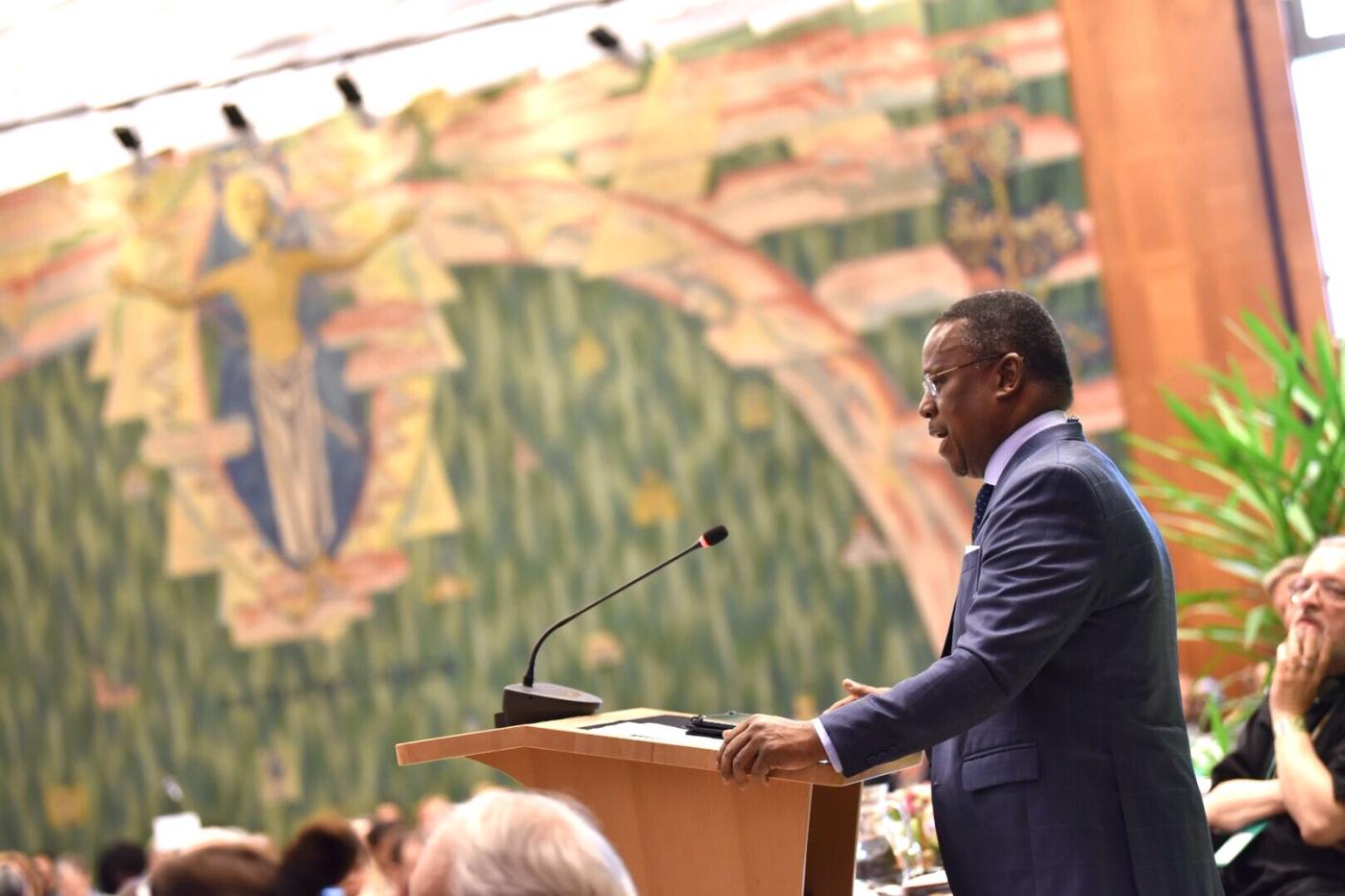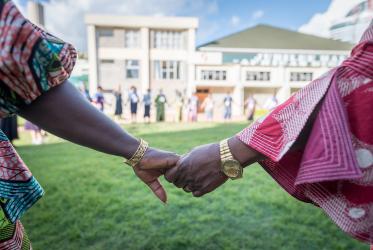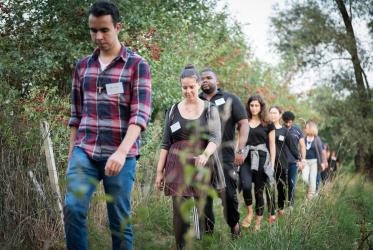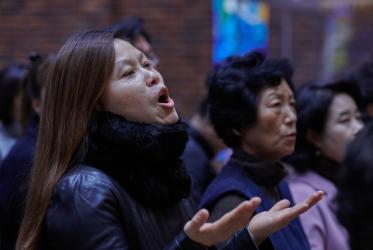“The pilgrim experience is one great communal prayer by walking together”, said Rev. Dr Fernando Enns, speaking to the World Council of Churches (WCC) Central Committee on 18 June, during a plenary on the Pilgrimage of Justice and Peace.
“Being on the way, doing theology in an ecumenical horizon becomes a theology of mutual accompaniment, of companionship of those who share the bread with each other on the way”, added Enns, who serves as co-moderator of the WCC’s Reference Group of the Pilgrimage of Justice and Peace.
The thematic plenary of the chief governing body of the WCC gathered in Geneva brought to light the experiences of recent Pilgrim Team Visits (PTVs) to countries including Colombia, Burundi, South Sudan and the Korean peninsula.
“The visits confirmed to me that getting to where people are builds confidence and trust that make it easier to assist such communities and people to find peace with justice”, said Rev. Frank Chikane, moderator of the WCC’s Commission of the Churches on International Affairs.
Reflecting on the meaning of the close accompaniment to people in context of conflict and division, Chikane said that “to be left alone without other external forces or benefactors that pursue their own interests the people are able to find solutions to seemingly intractable problems and challenges”.
WCC’s PTVs are expressions of companionship on the common journey of the Pilgrimage of Justice and Peace in search of the unity for which the churches strive.
Lorena Rios, coordinator of religious affairs at the Ministry of Interior of Colombia, spoke on the impact caused the PTVs in her country earlier this year and ways in which she thought the relations with ecumenical organizations are helping the peace process.
“As a woman of faith, I want to acknowledge the support we have had from the World Council of Churches, which has been key in the strategic moments for the achievement of the visibility and impact of the religious sector in my country”, said Rios. “Our peace process, although it is a new paradigm for the achievement of lasting peace, is first of all a testimony of how the international community has been committed and involved to accompany us in achieving it”.
Learn more about WCC's Pilgrimage of Justice and Peace







